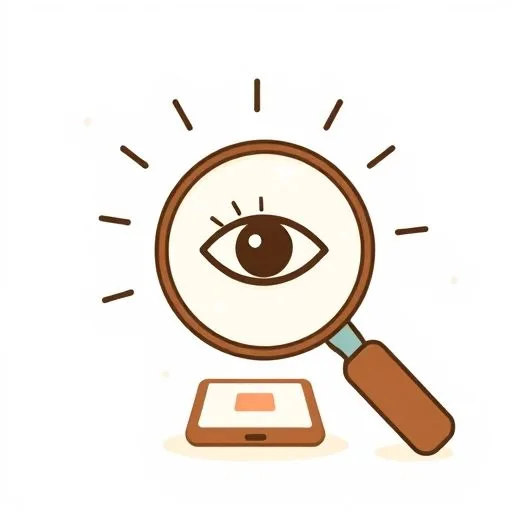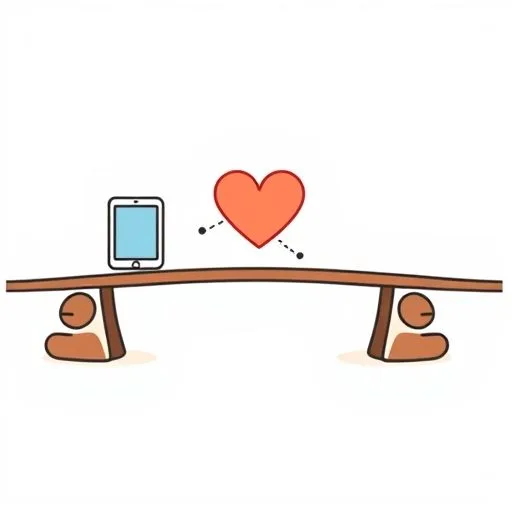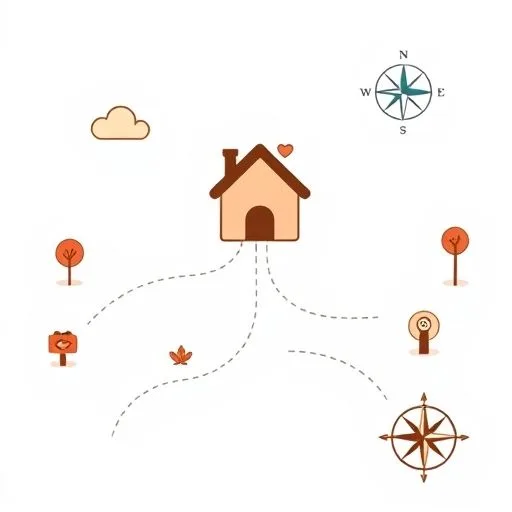
This is my favorite time of day. When the whole house is finally still, and the hum of a long day fades into a soft silence. Sitting here with you, just breathing for a minute… it’s the anchor I hold onto. Tonight, though, something is sitting with me. I saw an article earlier, about how kids are turning to AI chatbots for comfort, to talk about their day. And it made me think of a scene from this afternoon.
You know, when our child was curled up on the sofa, quietly tapping away on the screen? There was this little smile, then a thoughtful frown… a whole conversation happening in silence. My first thought was a knot in my stomach.
But then, another thought followed: what if they’ve found a friend in there? It’s nobody’s fault; it’s just the world they’re growing up in. Our kids are growing up with AI all around them.
But it left me wondering what our role is in this new world. I just… I wanted to talk it through with you.
That Non-Judgmental Ear… Maybe We Get It, Too

The article said kids seek out AI because they feel lonely, or because they want to talk without being judged. Doesn’t that just resonate somewhere deep inside?
Think about their days—school, activities, navigating friendships. It’s a constant performance. AIs don’t judge—they just listen,
It doesn’t interrupt, it doesn’t have a bad day, it doesn’t tell you your feelings are wrong. For a kid trying to figure things out, that must feel like magic.
And if I’m being honest, I’ve felt a pang of guilt every time I’ve been too tired to fully listen to a long story about a video game or a playground squabble. I see you, too, running on empty after a full day of work, yet you still summon the energy to smile and engage with every question.
We try so hard. But there are gaps. Maybe that quiet, digital friend has been filling in some of those gaps. And while part of me is grateful for that support, another part sees it as a gentle signal from our child’s heart—a sign that we need to lean in a little closer.
Your Quiet Way of Seeing: Our Best Guide

This is where I think of you. You have this incredible way of noticing the small things. A slight change in tone, a shadow in their eyes when they come home from school. You feel the weather inside our home before anyone else does.
That gut feeling you get? That’s our secret compass when it comes to AI. It’s not about spying on their chats, but about watching them. Do they seem happier after talking to their AI, or more withdrawn? Are they pulling away from real-life friends?
Those are the things you see. Your quiet strength in observation is our North Star. It’s a reminder that parenting with AI support isn’t about outsourcing our connection; it’s about using these new tools while paying even closer attention to our child’s emotional world. I think I need to follow your lead. Instead of asking, ‘Are you playing games again?’ I want to try asking, ‘So, what have you and the AI been talking about lately?’ Just opening the door, showing we respect their world enough to be curious about it.
Building a Bridge, Not a Wall

I’ve tried laying down the law before… it never really stuck. They just shut down or disappeared into their room. It just pushes them to hide things. They’re digital natives; this world is more intuitive to them than it is to us. So, what if we create our family’s digital compass together? We could come up with some simple ‘AI parenting balance tips for busy families’ of our own. Maybe we agree on a ‘tech-free hour’ before bed, where the AI friend gets put to rest and we just talk. Or read. Or just be quiet together.
But the most important agreement is the one we live out every day: the unwavering promise that we’re their safe space, even if they don’t always say it out loud. An AI can give perfectly worded advice, but it can’t wrap them in a hug when their heart is breaking. It can’t laugh until it cries with them over a silly joke. That warmth, that unconditional physical presence… that’s ours to give. We need to be the sturdy, reliable shelter they can always run to, no matter what.
All Roads Should Lead Back to Us

Thinking about it this way, maybe this new technology isn’t a threat. Maybe it’s an opportunity. We can use it as a conversation starter. ‘I heard an AI say that a lot of kids worry about friendships. Is that something you think about?’ We can use the AI’s world as a bridge into theirs, a way to gently knock on the door of their inner life.
After all, technology is only meaningful when it serves human connection. Our job, as I see it, is to make sure all the roads our child explores—even the digital ones—ultimately lead back home, to us. Making sure the conversations they have with an algorithm strengthen their ability to connect with the people who love them most. That feels like a worthy challenge for us to take on, doesn’t it? And with you by my side, I feel like we can navigate it with wisdom.
This whole AI thing is something else, huh? Totally different from anything we had growing up. We’re facing parenting challenges we couldn’t have imagined as kids. But sitting here with you, talking it through, knowing we’re looking in the same direction… it makes me feel like we’ve actually got this—no matter how wild it gets. How about tomorrow, we just take a walk after dinner, all of us, and just talk nonsense? No screens, just us.
Source: AI chatbots are harming young people. Regulators are scrambling to keep up., Fortune, 2025/09/14 10:00:00
